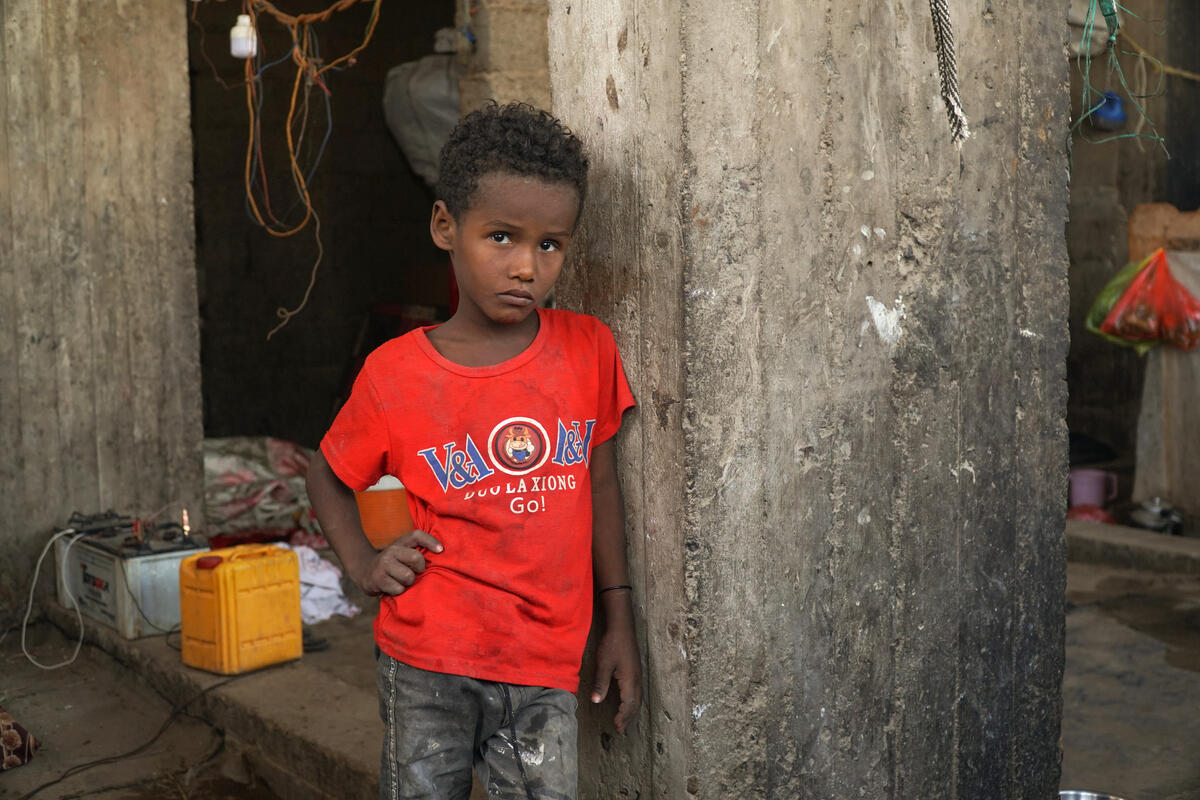UNHCR and partners call for urgent funding, as more people are being displaced by violence in northeast Nigeria
UNHCR and partners call for urgent funding, as more people are being displaced by violence in northeast Nigeria
As violence in the north east of Nigeria is escalating, the UN Refugee Agency and its partners are calling for more funding to help the more than 75,000 people who have fled to Cameroon, Chad and Niger.
UNHCR and 16 partners are calling on donors to urgently fund the latest appeal of USD 34 million to protect and provide lifesaving assistance to over 75,000 people who have fled across the border since last year, when insurgent groups intensified their campaign of terrorizing, killing and kidnapping civilians in Nigeria's north-eastern states of Adamawa, Borno and Yobe. During the month of August alone, more than 11,000 refugees crossed into Cameroon and Chad. Some 15,000 people have arrived in Niger's Diffa Region since the beginning of August, many of whom have settled on the islands of the Lake Chad. Recent attacks in September in Borno and Adamawa States have prompted new refugees to arrive in Cameroon and Niger. Aid agencies expect that the number of people fleeing to the three neighbouring countries could exceed 95,000 by the end of the year.
The Nigeria Refugee Response Plan presented to donors today (Tuesday) covers the most immediate protection and assistance needs of up to 95,000 people fleeing Nigeria until the end of the year. Given the upsurge in violence and growing numbers of people fleeing the conflict, these numbers will probably need to be revised upwards.
In Cameroon, the newly arrived are occupying school buildings and churches; some are staying with host families and others are living in the open and sleeping rough. The high prevalence of respiratory infections among children is of great concern. Over the past weekend, newly arrived refugees told our teams at the border area that insurgents had attacked their villages in the areas of Gwoza, Bama, Pulka and Idagala in Borno State, and stole everything before burning their houses. Some refugees are seriously traumatized having seen their relatives being brutally killed. Refugees said that a group of 40 to 60 armed men arrived in their village on motorbikes, telling villagers to embrace a more radical Islam and join their ranks, threatening to kill them.
The refugees escaped their homes at night and walked for days before reaching the relative safety of Kolofata, Mora and Fotokol in Cameroon - a long journey for children who arrived exhausted and with wounded feet. Refugees said that villages are mostly empty on the Nigeria side, with only old and disabled people remaining.
Fearing more cross border attacks in Cameroon, we have started to transfer the newly arrived refugees to the refugee camp in Minawao, some 120 kms further inland. Since the last week of August, nearly 8,000 refugees have been transferred to the camp, which now hosts over 13,000 people. However, the volatile security situation Cameroon's Far North region seriously hampers these relocation efforts, and more than 13,000 refugees remain at the border with Nigeria. In total, Cameroon is hosting some 43,700 Nigerian refugees according to authorities, including 26,753 refugees who have been registered by UNHCR. Dozens of people continue to arrive on a daily basis.
In Niger, a growing number of people continue to arrive, with more than 70% of them being women and children. While many of them have fled the recent attacks on Doron Bagga, Borno State, others leave out of fear that the insurgent threat is closing in on their villages and towns. An escalation of the violence in Nigeria and the ongoing threat on the outskirts of Maiduguri, the capital of Borno State, would lead to an even greater influx into neighbouring countries. Some Chadian nationals are also arriving, transiting through Niger to be able to return to their country.
The displaced are seeking accommodation in local villages and this puts significant pressure on the host communities. These communities are in areas experiencing chronic food insecurity, environmental problems and a general lack of basic services. Therefore, humanitarian efforts are focusing on strengthening local capacities and services, including health and education facilities, involving the host communities.
In addition, the Nigerian authorities requested UNHCR's support to better protect the nearly 650,000 internally displaced people in the six north-eastern States, including the three States under state of emergency (Adamawa, Borno and Yola). With the National Human Rights Commission and national NGOs, we are setting up a protection monitoring system that will allow us to identify and profile protection problems, followed by an adequate response. UNHCR and its partners will also provide shelter assistance and domestic items to displaced people with special needs. UNHCR, as part of the UN relief effort, is appealing for an additional USD 5.5 million for these activities in Nigeria.
For more information please contact:
- In Dakar, Hélène Caux on mobile +221 77 333 12 91
- In Cameroon, Djerassem Mbaiorem on mobile +237 70 40 18 41
- In Niger, Benoit Moreno on mobile +227 9219 2417
- In Geneva, Babar Baloch on mobile +41 79 557 91 06
- In Geneva, Karin de Gruijl on mobile +41 79 255 92 13









